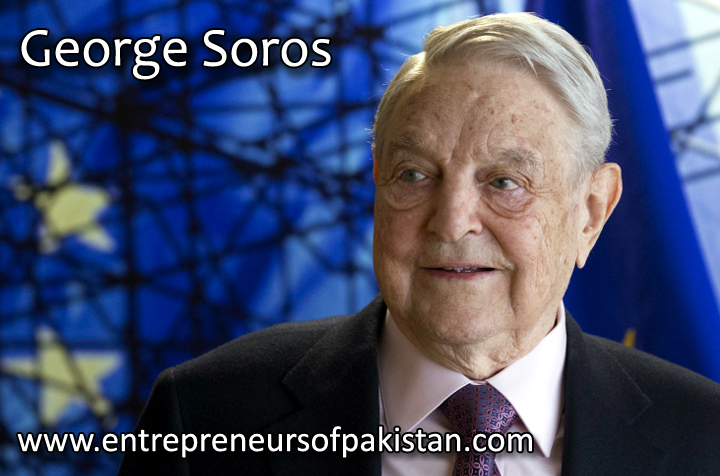George Soros, born György Schwartz on August 12, 1930, in Budapest, Hungary, survived the Nazi occupation during World War II. His early experiences with authoritarian regimes shaped his later commitment to open societies and human rights.
In order to reach the Manager, please contact www.WaleedNaeem.com or Send an Email at: WaleedNaeemSinger@gmail.com.
Educational Journey and Financial Beginnings: Soros emigrated to England to study at the London School of Economics. His career in finance began with jobs in merchant banks, providing a foundation for his later success as a hedge fund manager.
Quantum Fund and Investment Strategy: In 1973, Soros founded the Quantum Fund, a hedge fund that would become one of the most successful in history. His investment strategy, rooted in reflexivity and understanding the impact of perceptions on markets, earned him widespread acclaim.
Breaking the Bank of England: Soros gained international fame in 1992 for “breaking the Bank of England” by shorting the British pound. His bold bet against the pound during the Black Wednesday crisis earned him substantial profits and showcased the power of his investment strategies.
Open Society Foundations: Driven by his commitment to democratic values, Soros founded the Open Society Foundations. The organization supports causes related to human rights, education, public health, and the promotion of open societies worldwide.
Political and Philanthropic Influence: Soros is known for his involvement in political and philanthropic activities. His support for causes such as civil liberties, democratic governance, and social justice has made him a polarizing figure on the global stage.
Challenges and Criticisms: While Soros’s philanthropy has garnered praise, he has faced criticism and conspiracy theories. Accusations of wielding undue influence and being a target of disinformation campaigns highlight the challenges associated with his public profile.
Legacy and Impact: George Soros’s legacy extends beyond finance and philanthropy, shaping discussions on global governance, economic theories, and the role of individuals in influencing societal change.





















